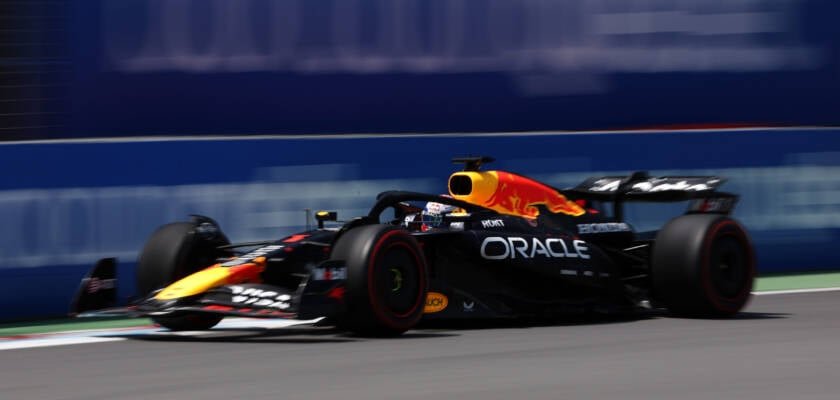Understanding FIA’s Decision-Making Process Regarding Penalties in Formula 1
In the high-stakes world of Formula 1 racing, the decisions made by officials can dramatically affect the outcomes for drivers and teams. One topic that has garnered attention recently is the potential penalties for drivers, particularly concerning Red Bull Racing’s star, Max Verstappen. The conversation surrounding Verstappen’s performance and potential infractions during the Canadian Grand Prix has raised questions about the FIA’s (Fédération Internationale de l’Automobile) approach to penalties, especially when it comes to the superlicence points system.
The Role of the FIA Officials
Wilhelm Singer, an FIA commissioner, has shed light on how infractions are managed within the sport. Singer emphasized that a violation by Verstappen during the Canadian Grand Prix would not necessarily lead to an automatic suspension for the driver. This indicates that the FIA officials possess a degree of discretion in their decision-making processes.
The commissioners are tasked with evaluating each incident on a case-by-case basis. According to Singer, the rules do not mandate an application of penalty points to a driver’s superlicence for every infraction. This flexibility allows for a more nuanced approach, acknowledging that not all violations carry the same weight or consequences.
The Superlicence Points System Explained
The superlicence points system is a crucial aspect of Formula 1, serving as a regulatory measure to maintain safety and sportsmanship within the sport. Drivers accumulate points on their superlicence for various infractions, and reaching a certain threshold can result in a suspension from competition. In Verstappen’s case, he currently stands at eleven points on his superlicence. The concern arises because an additional point could trigger an automatic ban from a race, specifically the upcoming Austrian Grand Prix, which is a significant event for Red Bull Racing, given its home-ground advantage.
The potential for Verstappen’s absence from such a crucial race has sparked considerable speculation among fans and analysts alike. However, Singer’s recent comments suggest that there remains a possibility for Verstappen to compete, depending on how the FIA officials choose to interpret the circumstances surrounding any infractions.
Discretion of the Commissioners
Singer articulated that while infractions typically result in penalties, these penalties may not always translate to points on a superlicence. He stated, “An infraction always results in a penalty, but not necessarily in points on the superlicence.” This statement reflects the commissioners’ authority to use their judgment when deciding on penalties. Each incident is subject to evaluation by three appointed commissioners, who assess the situation through collective voting.
This voting process is fundamental in ensuring that decisions are fair and consistent. It also reinforces the idea that the racing officials are not merely following a rigid set of rules but are instead using their experience and insight to make informed decisions that reflect the values of the sport.
The Impact of Commissioner Composition
The composition of the panel of commissioners can significantly influence the outcome of any given race weekend. For instance, Derek Warwick was initially slated to be one of the commissioners for the Canadian Grand Prix. However, he was suspended by the FIA due to statements deemed unauthorized, primarily concerning Verstappen. Warwick is known for his critical stance towards the Dutch driver and has been vocal in advocating for penalties in various situations involving Verstappen, including a notable incident during the Spanish Grand Prix.
Warwick’s absence from the Canadian Grand Prix could potentially work in Verstappen’s favor. The remaining commissioners may be less biased and more open to interpreting the incidents without preconceived notions, which could lead to a more favorable outcome for the Red Bull Racing driver.
The Importance of the Austrian Grand Prix
The Austrian Grand Prix holds particular significance, not just as a race, but also as a home event for Red Bull Racing. The team, headquartered in Austria, enjoys immense local support, and Verstappen’s participation is crucial for the team’s morale and performance. The FIA’s decision-making regarding any penalties he might face is, therefore, closely watched by fans and the media.
Singer underscored the importance of Verstappen competing in Austria, noting, “It would be important for Austria that Verstappen can race there.” This sentiment reflects the broader implications of the FIA’s decisions—how they resonate with fans, the local community, and the overall spirit of competition in Formula 1.
The Broader Context of Formula 1 Regulations
Understanding the intricacies of the FIA’s regulatory framework provides insight into how the sport operates and the delicate balance between maintaining order and allowing for competitive spirit. The FIA continually revises its regulations and guidelines to enhance safety, fairness, and the excitement of racing.
As the sport evolves, so too does the interpretation of its rules. The officials are tasked with ensuring that the integrity of the sport is upheld while also fostering an environment where drivers can showcase their talents without fear of undue penalization.
Conclusion
The evolving narrative surrounding Max Verstappen and the FIA’s decisions highlights the complexities inherent in Formula 1 racing. The discretion afforded to officials, the implications of the superlicence points system, and the significance of individual races contribute to a dynamic and thrilling sport that captures the attention of millions worldwide.
As fans eagerly await the next chapter in this unfolding story, the interplay between rules, interpretation, and the pursuit of excellence continues to shape the landscape of Formula 1 racing.
